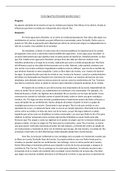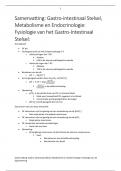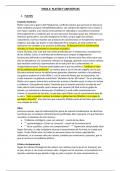International Investment Law
Sources
- ICSID Convention: multilateral treaty provides a procedural framework for dispute
settlement between host states and foreign investors through conciliation or arbitration
- BITs are the most important sources of IIL. they provide guarantees for the
investments of investors from one of the contracting States in the other Contracting
State. They generally offer definitions on investment of investor (pt 1, definitions),
substantive standards for the protection of the investor or investments (pt 2) like a
provision on admission of investment, a FET guarantee, guarantee of full protection
and security, a guarantee of MFN treatment (MFN clause), guarantees in the case of
expropriation, guarantees concerning free transfer of payments, and dispute
settlement provisions (pt 3). Most BITs contain one provision on investor-state
arbitration, but also on state-state arbitration (rare compared to investor-state
arbitration)
- Sectoral and regional treaties: Energy Charter Treaty and NAFTA
- Customary international law: treaty rules have t be understood and interpreted in the
context of general IPL rules, ergo art 31 and 32 VCLT.
- General principles of law: especially in the case of lacunae
- Unilateral statements: the legal effect and the conditions under which they may be
considered binding have played a prominent role in some cases, especially in the
context of the FET guarantee. ‘Waste Management v Mexico’: tribunal found that in
applying the FET standard, it is relevant that the treatment is in breach of
representations made by the host state which were reasonably relied on by claimant.
‘Total v Argentina’: under IPL, unilateral acts, statements and conduct by States may
be the source of legal obligations which intended beneficiaries or addressees, or
possibly, any member of the international community can invoke. This is only partly
related to legitimate expectations principles.
- Case law: tribunals not bound, but do examine them and refer to them frequently.
Nature of IIL
Very nature of the law of aliens being at the origin of foreign investment law, indicates that
the raison d’etre of this field of law does not reflect the traditional themes of reciprocity and
mutuality, but instead sets accepted standards for the unilateral conduct of the host state.
In an investment treaty, the host state deliberately renounces an element of its sovereignty in
return for new opportunity, the chance better to attract new foreign investments. after the
investment treaty is conducted, there is no balancing of interest for the sovereign anymore,
and the investor is entitled to rely on the scheme accepted in the treaty by the host state as
long as the treaty remains in force.
, Investor’s perspective: a long term risk. Once negotiations are concluded and the investor’s
resources are sunk into the project, the dynamics of influence and power tend to shift in
favour of the host state.
BITs give guarantees to investors but do not normally address obligations of investors,
although some BITs provide that instruments in order to be protected, must be in accordance
with host state law.
Interpretation and Application Investment Treaties
Most tribunals start with article 31 VCLT, and at times will also refer to the supplementary
means of interpretation contained in article 32 of the VCLT. A treaty’s object and purpose is
among the primary guides for interpretation listed in article 31 VCLT (preambles). Tribunals
have frequently interpreted investment treaties in the light of their object and purpose, often
by looking at their preambles. This led to an interpretation that is favourable to the investor.
In investment arbitration (no precedence: repeatedly confirmed by tribunals, but as seen
before, there is constant referral to previous cases as well) each tribunal is constituted ad hoc
for a particular case, making coherent case law hard (which would possibly strengthen the
predictability of decision).
Art 28 VCLT (non-retroactivity of treaties) principle also valid in IPL and thus IIL.
Jurisdictional implications: if under treaty, consent to arbitration is limited to claims alleging
a violation of that treaty, the date of entry into force is also the date from which acts and
events are covered by the consent with exception for continuing breach (Mondev v US, p. 37-
38 boek).
ICSID entered into force in 1966.
> consent must have existed at time of breach, p. 38-43 boek
IIL designed to protect and promote the activities of private foreign investors. This does not
exclude necessarily the protection of government controlled entities as long as they act as
commercial rather than in government capacity. Non-profit organisations> less clear, p.44
Foreignness of investment is determined by the investor’s nationality
> Substantive standards guaranteed in a treaty will only apply to the respective nationals
> In addition, the jurisdiction of an international tribunal is determined, inter alia (4
conditions, art 25 ICSID) a claimant’s nationality
Nationality of individual (primarily determined by the domestic law of the country one
derives its nationality from) is necessary to rely on a BIT, think of p. 45 example Canada-
Italy in book. In case of dual nationality, again no difference between effective and non-less
effective nationality. National can rely on BIT of both countries. Tribunals are generally not
impressed by arguments concerning the effectiveness of a nationality, also in the case of a
national being excluded because it also has the nationality of the other State party to the
dispute.
Sources
- ICSID Convention: multilateral treaty provides a procedural framework for dispute
settlement between host states and foreign investors through conciliation or arbitration
- BITs are the most important sources of IIL. they provide guarantees for the
investments of investors from one of the contracting States in the other Contracting
State. They generally offer definitions on investment of investor (pt 1, definitions),
substantive standards for the protection of the investor or investments (pt 2) like a
provision on admission of investment, a FET guarantee, guarantee of full protection
and security, a guarantee of MFN treatment (MFN clause), guarantees in the case of
expropriation, guarantees concerning free transfer of payments, and dispute
settlement provisions (pt 3). Most BITs contain one provision on investor-state
arbitration, but also on state-state arbitration (rare compared to investor-state
arbitration)
- Sectoral and regional treaties: Energy Charter Treaty and NAFTA
- Customary international law: treaty rules have t be understood and interpreted in the
context of general IPL rules, ergo art 31 and 32 VCLT.
- General principles of law: especially in the case of lacunae
- Unilateral statements: the legal effect and the conditions under which they may be
considered binding have played a prominent role in some cases, especially in the
context of the FET guarantee. ‘Waste Management v Mexico’: tribunal found that in
applying the FET standard, it is relevant that the treatment is in breach of
representations made by the host state which were reasonably relied on by claimant.
‘Total v Argentina’: under IPL, unilateral acts, statements and conduct by States may
be the source of legal obligations which intended beneficiaries or addressees, or
possibly, any member of the international community can invoke. This is only partly
related to legitimate expectations principles.
- Case law: tribunals not bound, but do examine them and refer to them frequently.
Nature of IIL
Very nature of the law of aliens being at the origin of foreign investment law, indicates that
the raison d’etre of this field of law does not reflect the traditional themes of reciprocity and
mutuality, but instead sets accepted standards for the unilateral conduct of the host state.
In an investment treaty, the host state deliberately renounces an element of its sovereignty in
return for new opportunity, the chance better to attract new foreign investments. after the
investment treaty is conducted, there is no balancing of interest for the sovereign anymore,
and the investor is entitled to rely on the scheme accepted in the treaty by the host state as
long as the treaty remains in force.
, Investor’s perspective: a long term risk. Once negotiations are concluded and the investor’s
resources are sunk into the project, the dynamics of influence and power tend to shift in
favour of the host state.
BITs give guarantees to investors but do not normally address obligations of investors,
although some BITs provide that instruments in order to be protected, must be in accordance
with host state law.
Interpretation and Application Investment Treaties
Most tribunals start with article 31 VCLT, and at times will also refer to the supplementary
means of interpretation contained in article 32 of the VCLT. A treaty’s object and purpose is
among the primary guides for interpretation listed in article 31 VCLT (preambles). Tribunals
have frequently interpreted investment treaties in the light of their object and purpose, often
by looking at their preambles. This led to an interpretation that is favourable to the investor.
In investment arbitration (no precedence: repeatedly confirmed by tribunals, but as seen
before, there is constant referral to previous cases as well) each tribunal is constituted ad hoc
for a particular case, making coherent case law hard (which would possibly strengthen the
predictability of decision).
Art 28 VCLT (non-retroactivity of treaties) principle also valid in IPL and thus IIL.
Jurisdictional implications: if under treaty, consent to arbitration is limited to claims alleging
a violation of that treaty, the date of entry into force is also the date from which acts and
events are covered by the consent with exception for continuing breach (Mondev v US, p. 37-
38 boek).
ICSID entered into force in 1966.
> consent must have existed at time of breach, p. 38-43 boek
IIL designed to protect and promote the activities of private foreign investors. This does not
exclude necessarily the protection of government controlled entities as long as they act as
commercial rather than in government capacity. Non-profit organisations> less clear, p.44
Foreignness of investment is determined by the investor’s nationality
> Substantive standards guaranteed in a treaty will only apply to the respective nationals
> In addition, the jurisdiction of an international tribunal is determined, inter alia (4
conditions, art 25 ICSID) a claimant’s nationality
Nationality of individual (primarily determined by the domestic law of the country one
derives its nationality from) is necessary to rely on a BIT, think of p. 45 example Canada-
Italy in book. In case of dual nationality, again no difference between effective and non-less
effective nationality. National can rely on BIT of both countries. Tribunals are generally not
impressed by arguments concerning the effectiveness of a nationality, also in the case of a
national being excluded because it also has the nationality of the other State party to the
dispute.












